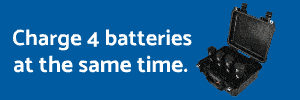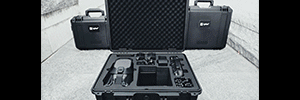The current US FAA rules do not classify different types of UAS by risk for a given aspect of flight. The same rules apply to advanced quads like DJI, cheap $80 crap with no GPS, RTH, auto hover in position, etc, fixed-wing model airplanes, R/C helicopters - and all of these could weigh up to 50 lbs!
They have said that the rules would be subject to relaxing (well, Part 107, anyway), and I am hoping that they come out with UAS classes, each of which must observe some or all of the existing rules based on their risk profile. For example, it's a very low risk that a properly flown DJI quad will hurt someone while flying over them, as there are safety features that cover positioning, altitude, loss of control signal, etc. That's a lot different than an R/C copter, which generally upon LOS will simply crash.
However, my concern is that the more we have incidents involving quads - and really, 95%+ of the incidents I've read about appear to be DJI equipment - the more risk may be assigned to them. RTH works great until someone flies it 5 miles out with 35% battery left, and then it lands on a busy street and causes an accident. The more people obey the law AND guidelines, the more likely that we will have more freedoms, IMO - and the opposite as well.
However, based on the responses I get on here when I am trying to explain the actual law, not that many people are interested in following it, so I've pretty much given up and - quite frankly - have gotten kinda soured on participating here and in FB groups.. I'll just let the FSDO sort that kind of thing out in the future. My understanding is that they are beginning to look at YouTube, Facebook, Vimeo, and forums to find and identify scofflaws..











